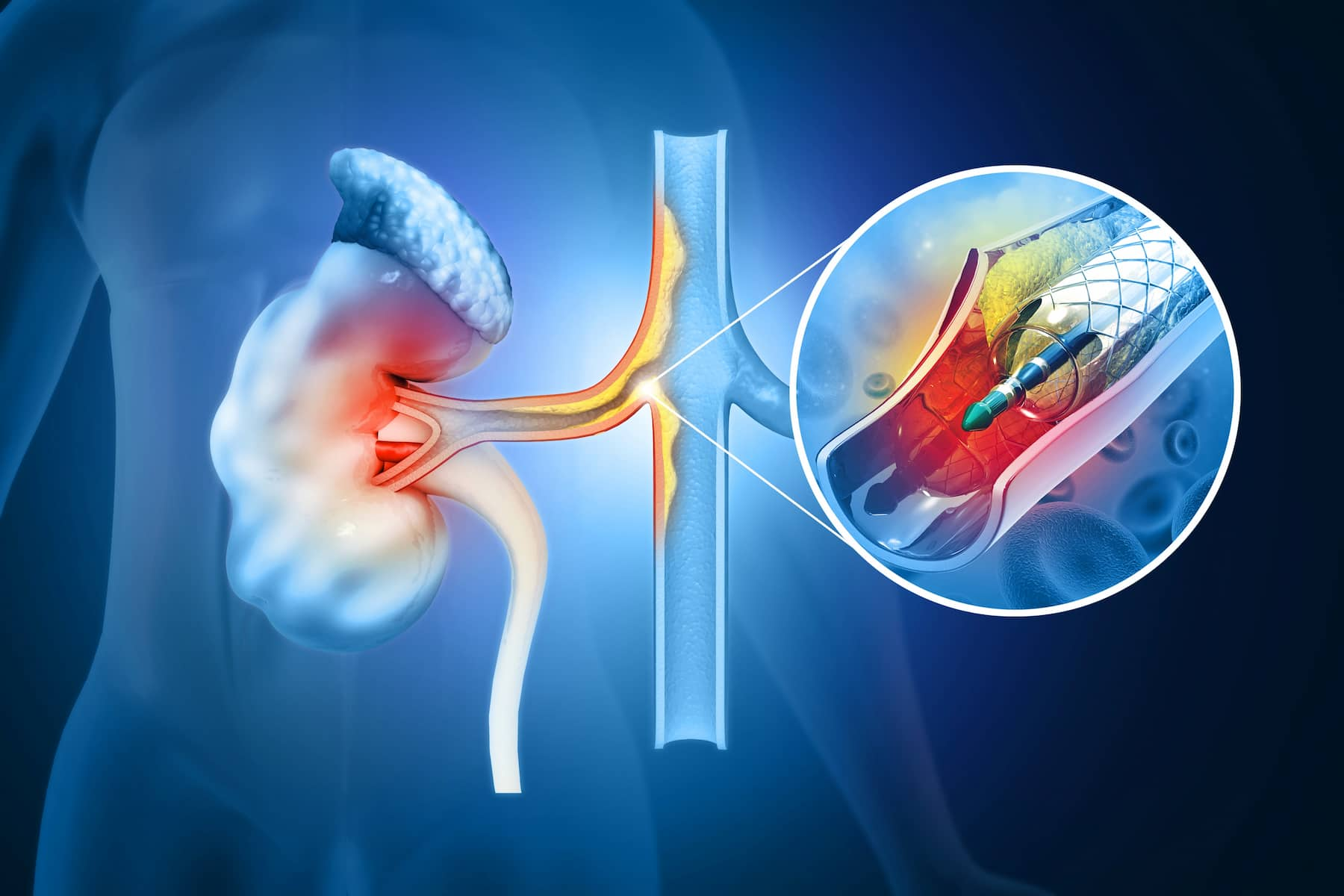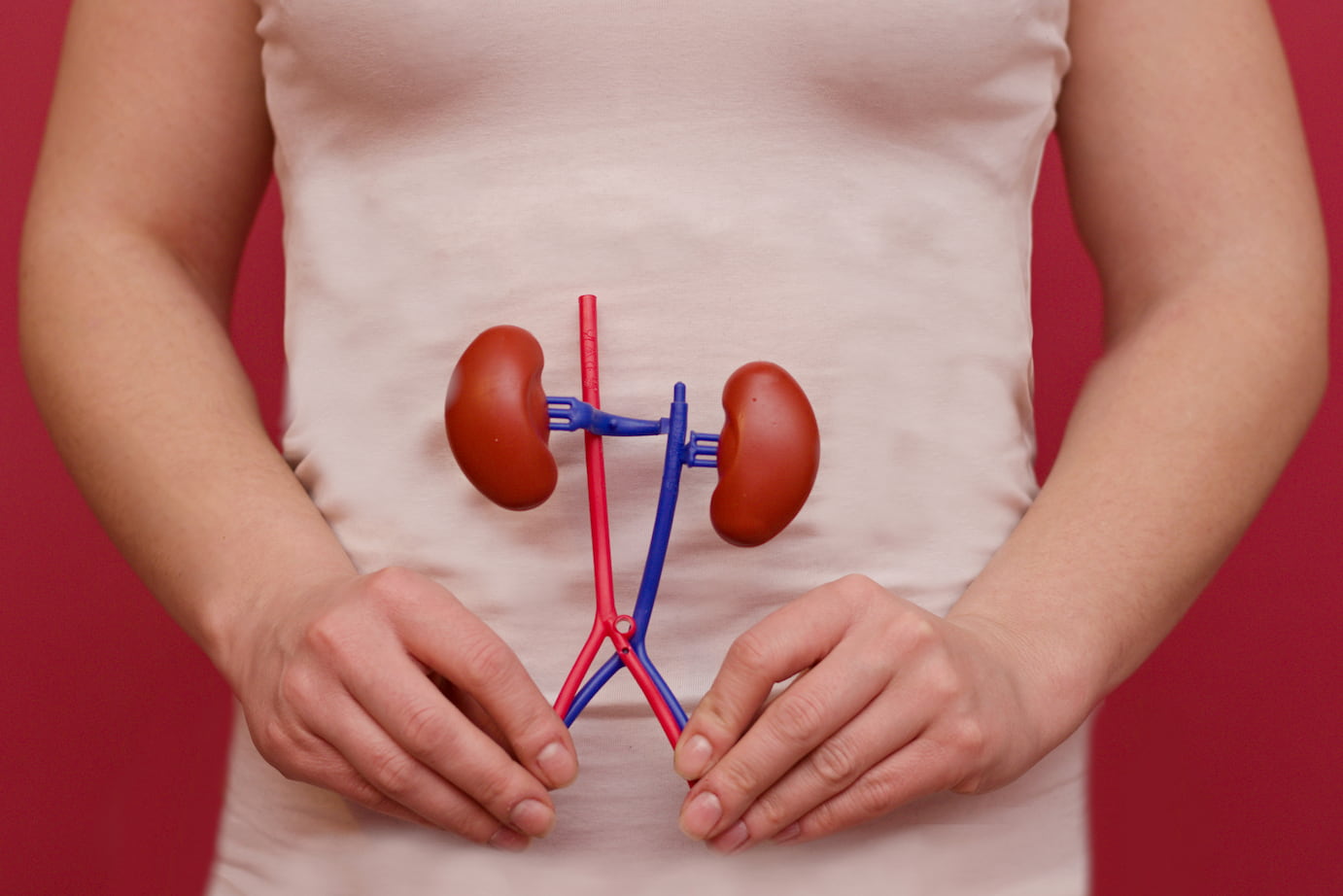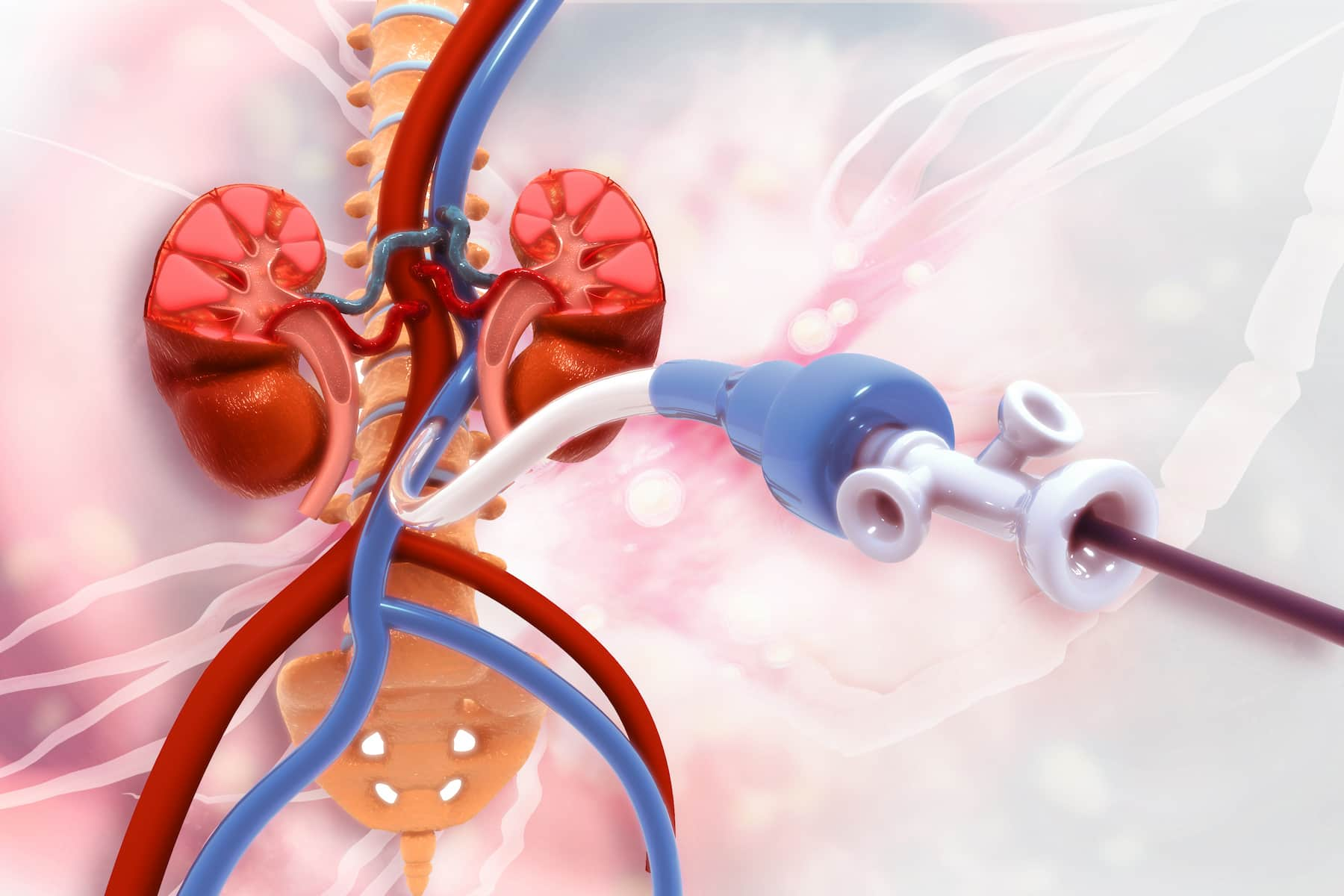Treatment of Vascular Diseases of Kidneys in Turkey
Healthy Türkiye helps you find the best treatment of vascular diseases of kidneys in Turkey at affordable prices and adopts a 360-degree service approach in all areas of health through affiliated hospitals.
- Homepage
- Medical Treatment
- Treatment of Vascular Diseases of Kidneys in Turkey

About Treatment of Vascular Diseases of Kidneys in Turkey
Treatment of vascular diseases of kidneys in Turkey is carried out by doctors specializing in the field of vascular. Vascular diseases of kidneys, also known as renal vascular disease, is a form of arterial disease. The renal artery allows blood to the kidneys, the organ responsible for filtering waste from the body. Like other arteries, the renal arteries can become obstructed with a build-up of plaque, which causes reduced blood flow to the kidneys. In this condition, the kidney reacts to this lower blood flow as if the body’s overall blood pressure is low and responds by releasing an enzyme called renin into the bloodstream.
Renin causes smaller vessels to constrict and the body to retain sodium, which is typically lost in the urine. These events cause blood pressure to rise, followed by hypertension (high blood pressure). As these blockages worsen, the kidney might have difficulty in clearing the body’s waste products, and kidney failure can occur. Issues with blood flow to your kidneys can lead to kidney failure and high blood pressure. Hospitals and clinics in Turkey offer diagnosis and treatment for renal vascular diseases.

Treatment of Vascular Diseases of Kidneys Procedure in Turkey
The kidneys are two small bean-shaped organs in your lower back. They remove waste from your body, regulate electrolyte balance and blood pressure, and stimulate your body’s red blood cell creation. The renal artery delivers blood flow to the kidneys. When this artery is blocked, it may cause critical medical problems. Issues with the renal artery are called a renal vascular disease or renovascular disease.
The kidneys require a good blood supply to function well. The basic artery that takes blood to the kidneys is called the renal artery. Renal means kidney. Renal vascular disease is any of a number of cases that limit blood flow in and out of the kidneys. These situations can affect the renal artery, or the smaller arteries going to the kidneys. These conditions can lead to kidney damage or kidney failure.

We Care About Your Health
Healthy Türkiye provides the best for your health and comfort. You will feel privileged with us.
7/24 Quality Personal Assistance Throughout Your Journey
Customizable for You All-Inclusive Packages
Get the Right Advice for your Health
Types of Vascular Diseases of Kidneys in Turkey
Renal vascular disease is the name given to various complications that affect the arteries and veins of the kidneys. These complications affect the blood circulation of the kidneys and can cause damage to the kidney tissues and various medical problems. Vascular conditions affecting the renal arteries and veins involve the following:
Renal Artery Stenosis
Renal artery stenosis (RAS) is a condition in which an artery to the kidneys is blocked. It might cause kidney failure and hypertension. Smokers have a higher risk of developing renal artery stenosis. RAS is most seen in men between the ages of 50 to 70. High cholesterol, diabetes, being overweight, and having a family history of cardiovascular disease are also risk factors for renal artery stenosis. High blood pressure is both a cause and a result of renal artery stenosis.
Renal Artery Thrombosis
The treatment of renal artery thrombosis depends on the type of thrombosis (acute or chronic) and the time elapsed since the thrombosis occurred. In acute conditions, thrombolytic (clot-busting) medication might be infused into the renal artery for several hours to several days to break up the clot. Surgery to extract the clot or bypass the artery might be performed in some conditions.
Renal Artery Aneurysm
A renal artery aneurysm is a bulging, weakened site in the wall of an artery to the kidney. Most of these aneurysms are small (less than two centimeters, or around three-quarters of an inch) and without symptoms. Renal artery aneurysms are rare and are usually discovered during diagnostic procedures performed in relation to other cases.
Atheroembolic Renal Disease
Atheroembolic renal disease occurs when a piece of plaque from the aorta and/or other big arteries breaks off and travels through the bloodstream, blocking small arteries such as the renal arteries. Atheroembolic renal disease is becoming a common cause of renal insufficiency in the elderly.
Renal Vein Thrombosis
Renal vein thrombosis occurs when there is a clot in a vein leading to the kidney. Renal vascular disease is generally associated with hypertension (high blood pressure). Hormones that affect blood pressure are influenced by kidney function. Decreased blood flow to the kidney(s) as a result of renal vascular disease might cause an excessive amount of renin to be produced. Renin is an effective hormone that increases blood pressure.
Causes of Vascular Diseases of Kidneys
The most common cause of renal vascular diseases is arteriosclerosis (the thickening and hardening of artery walls) with cholesterol and plaque build-up. This is alike to what is seen in the coronary arteries of the heart, the carotid arteries to the brain, and the leg vessels. Men are affected by this situation twice as frequently as women, with 55 as the average age at diagnosis.
Fibromuscular dysplasia (FMD) is an abnormal growth on the inside of the renal artery that generally affects middle-aged women but has also been found in men and people of all ages. Renal artery aneurysms (abnormal bulging of a part of the renal artery) can generally twist or compress a nearby renal artery, causing it to become narrowed.
Diagnosis for Treatment of Vascular Diseases of Kidneys in Turkey
Your specialist in Turkey might use a stethoscope on the front or side of your abdomen (and groin) to listen to the blood flow. You will also require urine and blood tests to ensure your kidneys are working properly. To diagnose renal vascular disease specifically, imaging tests are needed. Initially, an ultrasound is generally done, and then sometimes an MR angiogram (MRA). Following this, a kidney angiogram might be used to get a better image of the artery and a more accurate diagnosis of renal vascular disease; the disadvantage is that this procedure has more risk.

Treatment of Vascular Diseases of Kidneys Types in Turkey
The main objective for treatment of vascular diseases of kidneys in Turkey is to control the symptoms and prevent future complications. Treatment of vascular diseases of kidneys range from lifestyle modification to minimally invasive therapies to surgical operations. Vascular specialists in Turkey will work with your primary physician at Healthy Türkiye to provide comprehensive, individualized vascular care and communicate regularly about your long-term vascular health.
Lifestyle Modification
Patients whose symptoms are mild to moderate can generally manage their disease by making lifestyle changes such as quitting smoking, getting regular exercise, improving their diet, and working with their specialists to take care of related conditions, such as diabetes, high blood pressure, and high cholesterol.
Medical Therapy
Specialists in Turkey might also prescribe medications to improve blood flow, such as antiplatelet agents (blood thinners) and medicines that relax the blood vessel walls. Medicines are also used to treat underlying conditions such as diabetes, hypertension, and high cholesterol.
Minimally Invasive Approaches
Vascular specialists in Turkey generally apply minimally invasive procedures such as angioplasty and stenting to relieve the narrowing in the blood vessels and improve blood supply to the kidneys and intestines. Because they are less invasive procedures, angioplasty and stenting are frequently used in conditions where patients would be poor candidates for open surgery.
However, they are also being applied more and more in lower-risk patients, as they are less invasive and have a quicker recovery time compared to open surgery. The methods work best when the diseased portion of the artery is relatively small, and when the diseased artery is easily accessible with a catheter.
Angioplasty
During angioplasty, vascular specialists in Turkey use a special catheter that has a small balloon at the end, which can be inflated and deflated. The deflated balloon catheter is placed through an artery in the groin or the wrist and guided to the narrowed segment of the artery. When the catheter reaches the blocked area, the balloon is inflated to widen the narrowed artery.
Stenting
In some conditions, it might be necessary to place a stent. A stent is a small tube that holds open the artery at the area of the blockage. The stent is collapsed around a balloon when it is placed on the tip of the catheter and inserted in the body. Once the catheter reaches the blockage, the specialist expands the stent by inflating the balloon. The stent is left permanently in the artery to deliver a reinforced channel through which blood can flow. Some stents are coated with a medicine that helps prevent the formation of scar tissue.
Surgery
If the renal vascular disease is very advanced, or if blockages develop in an artery that is difficult to reach with a catheter, arterial bypass surgery might be necessary to restore blood flow.
Arterial Bypass Surgery
To surgically correct the decreased blood flow through the artery, specialists place a bypass graft made of synthetic material or a natural vein taken from another part of the body. During the operation, the specialist will make an incision to expose the diseased segment of the artery and then attach one end of a bypass graft to a point above the blockage and the other end to a point below it. The blood supply is then directed around the blockage through the graft to bypass the diseased section of the artery. The diseased artery stays in place.

2026 Costs – Treatment of Vascular Diseases of Kidneys in Turkey
All types of medical attention, like the treatment of vascular diseases of kidneys are very affordable in Turkey. Many factors are also included in determining the cost of treatment of vascular diseases of kidneys in Turkey. Your process with Healthy Türkiye will last from the time you decide to have treatment of vascular diseases of kidneys in Turkey until the time you are fully recovered even if you are back home. The exact treatment of vascular diseases of kidneys procedure cost in Turkey depends on the type of operation involved.
The cost of treatment of vascular diseases of kidneys in Turkey does not demonstrate many variations in 2026. Compared to costs in developed countries like the United States or the UK, treatment of vascular diseases of kidneys costs in Turkey are relatively low. So, it’s no wonder patients from across the world visit Turkey for treatment of vascular diseases of kidneys procedures. However, the price is not the only factor affecting choices. We suggest looking for hospitals that are safe and have treatment of vascular diseases of kidneys reviews on Google. When people decide to seek medical help for the treatment of vascular diseases of kidneys, they will not only have had low-cost procedures in Turkey but also the safest and best treatment.
At clinics or hospitals contracted with Healthy Türkiye, patients will receive the best treatment of vascular diseases of kidneys from specialist doctors in Turkey at affordable rates. Healthy Türkiye teams provide medical attention, treatment of vascular diseases of kidneys procedures, and high-quality treatment to patients at a minimum cost. When you contact Healthy Türkiye assistants, you can get free information about the cost of treatment of vascular diseases of kidneys in Turkey and what this cost covers.
Price of Treatment of Vascular Diseases of Kidneys in the UK?
The cost of treatment of vascular diseases of kidneys in the UK is between £10,000 to £25,000.
Price of Treatment of Vascular Diseases of Kidneys in the USA?
The cost of treatment of vascular diseases of kidneys in the USA is between $15,000 to $50,000
Price of Treatment of Vascular Diseases of Kidneys in Turkey?
The cost of treatment of vascular diseases of kidneys in Turkey is between $3,000 to $12,000.
Why Is Treatment of Vascular Diseases of Kidneys Cheaper in Turkey?
One of the main considerations before traveling abroad for the treatment of vascular diseases of kidneys is the cost-effectiveness of the whole process. Many patients think that when they add flight tickets and hotel expenses to their treatment of vascular diseases of kidneys costs, it will become very expensive to travel, which is not true. Contrary to popular belief, round-trip flight tickets to Turkey for the treatment of vascular diseases of kidneys can be booked very affordably.
In this case, assuming you are staying in Turkey for your treatment of vascular diseases of kidneys, your total travel expense of flight tickets and accommodation will only cost less than any other developed country, which is nothing compared to the amount that you are saving. The question “Why is the treatment of vascular diseases of the kidneys cheaper in Turkey?” is so common among patients or people simply curious about getting their medical treatment in Turkey. When it comes to treatment of vascular diseases of kidneys prices in Turkey, there are 3 factors allowing cheaper prices:
The currency exchange is favorable for whoever looking for treatment for vascular diseases of kidneys has a euro, dollar, or pound;
The lower cost of living and cheaper overall medical expenses such as treatment of vascular diseases of kidneys;
For treatment of vascular diseases of kidneys, incentives are given by the Turkish Government to medical clinics working with international clients;
All these factors allow for cheaper treatment of vascular diseases of kidneys prices, but let’s be clear, these prices are cheaper for people with strong currencies (as we said, euro, dollar, Canadian dollar, pound, etc).
Every year, thousands of patients from all over the world come to Turkey to get treatment of vascular diseases of kidneys. The success of the healthcare system has increased in recent years, especially for treatment of vascular diseases of kidneys. It’s easy to find well-educated and English-speaking medical professionals in Turkey for all kinds of medical treatment, such as treatment of vascular diseases of kidneys.
Why Choose Turkey for Treatment of Vascular Diseases of Kidneys?
Turkey is a common choice among international patients seeking advanced treatment of vascular diseases of kidneys. Turkey’s health procedures are safe and effective, with a high success rate, like treatment of vascular diseases of kidneys. The increasing demand for high-quality treatment of vascular diseases of kidneys at affordable prices has made Turkey a popular medical travel destination. In Turkey, the treatment of vascular diseases of kidneys is performed by highly experienced and trained doctors with the most advanced technology in the world. Treatment of vascular diseases of kidneys is done in Istanbul, Ankara, Antalya, and other major cities. The reasons for choosing the treatment of vascular diseases of kidneys in Turkey are as follows:
High-quality hospitals: Joint Commission International (JCI) accredited hospitals have dedicated treatment of vascular diseases of kidneys units that are specially designed for patients. International and national strict protocols provide effective and successful treatment of vascular diseases of kidneys for patients in Turkey.
Qualified experts: The expert teams include nurses and specialist doctors, together to carry out treatment of vascular diseases of kidneys according to the patient’s needs. All the included doctors are highly experienced in performing the treatment of vascular diseases of kidneys.
Affordable price: The cost of treatment of vascular diseases of kidneys in Turkey is affordable compared to Europe, the USA, the UK, Singapore, Australia, etc.
The high success rate: Highly experienced specialists, the best available technology, and stringently followed safety guidelines for post-operative care of the patient resulted in a high success rate for the treatment of vascular diseases of kidneys in Turkey.
Is Treatment of Vascular Diseases of Kidneys Safe in Turkey?
Did you know Turkey is one of the most visited destinations for treatment of vascular diseases of kidneys in the world? It is ranked as one of the most visited tourist destinations for the treatment of vascular diseases of kidneys. Over the years it has also come to be a very popular medical tourism destination too with many tourists coming in for treatment of vascular diseases of kidneys. There are so many reasons why Turkey stands out as a leading destination for treatment of vascular diseases of kidneys. Because Turkey is both safe and easy to travel to too with a regional airport hub and flight connections to pretty much everywhere, it is preferred for treatment of vascular diseases of kidneys.
The best hospitals in Turkey have experienced medical staff and specialists who have performed thousands of medical services such as the treatment of vascular diseases of kidneys. All procedures and coordination related to treatment of vascular diseases of kidneys are controlled by the Ministry of Health in accordance with the law. Over many years, the greatest progress in medicine has been observed in the field of the treatment of vascular diseases of kidneys. Turkey is known among foreign patients for its great opportunities in the area of treatment of vascular diseases of kidneys.
To emphasize, besides the price itself, the key factor in selecting a destination for treatment of vascular diseases of kidneys is certainly the standard of medical services, the hospital staff’s high expertise, hospitality, and the safety of the country.
All-Inclusive Packages for Treatment of Vascular Diseases of Kidneys in Turkey
Healthy Türkiye offers all-inclusive packages for the treatment of vascular diseases of kidneys in Turkey at much lower prices. Extremely professional and experienced doctors and technicians carry out high-quality treatment of vascular diseases of kidneys. The cost of treatment of vascular diseases of kidneys in European countries can be quite expensive, especially in the UK. Healthy Türkiye provides cheap all-inclusive packages for a long and short stay of treatment of vascular diseases of kidneys in Turkey. Because of many factors, we can provide you with many opportunities for your treatment of vascular diseases of kidneys in Turkey.
The price of treatment of vascular diseases of kidneys differs in other countries due to medical fees, staff labor prices, exchange rates, and market competition. You can save much more in treatment of vascular diseases of kidneys compared to other countries in Turkey. When you purchase treatment of vascular diseases of kidneys all-inclusive package with Healthy Türkiye our healthcare team will present a list of hotels for you to choose from. In treatment of vascular diseases of kidneys travel, you will have the price of your stay included in the all-inclusive package cost.
In Turkey, when you purchase treatment of vascular diseases of kidneys all-inclusive packages through Healthy Türkiye, you will always receive VIP transfers. These are provided by Healthy Türkiye, which is contracted with highly qualified hospitals for treatment of vascular diseases of kidneys in Turkey. The Healthy Türkiye teams will organize everything about the treatment of vascular diseases of kidneys for you and have you picked up from the airport and safely brought to your accommodation. Once settled in the hotel, you will be transferred to and from the clinic or hospital for treatment of vascular diseases of the kidneys. After your treatment of vascular diseases of kidneys has been successfully completed, the transfer team will return you to the airport in time for your flight home. In Turkey, all packages of treatment for vascular diseases of the kidneys can be arranged upon request, which relaxes the minds of our patients. You can reach out Healthy Türkiye for everything you need to know about treatment of vascular diseases of kidneys in Turkey.
The Best Hospitals in Turkey for Treatment Of Vascular Diseases Of Kidneys
The best hospitals in Turkey for treatment of vascular diseases of kidneys are Healthy Türkiye, Memorial Hospital, Acıbadem International Hospital, and Medicalpark Hospital. These hospitals attract patients from all over the world seeking treatment of vascular diseases of kidneys due to their affordable prices and high success rates.
Best Doctors and Surgeons in Turkey for Treatment Of Vascular Diseases Of Kidneys
The best doctors and surgeons in Turkey for treatment of vascular diseases of kidneys are highly skilled professionals who offer specialized care and advanced procedures. With their expertise and state-of-the-art techniques, these specialists ensure that patients receive high-quality treatment of vascular diseases of kidneys and achieve optimal health results.

Frequently Asked Questions
If you have high blood pressure and renal artery stenosis in both kidneys, you might not be a good candidate for some ACE inhibitors, which can interfere with the kidney’s ability to extract waste from the blood.
The kidneys require a good blood supply. A complete blockage of blood flow to the kidney can usually result in permanent kidney failure.
The renal artery angioplasty takes between 1 to 2 hours, including the time taken to get you ready.
Regular exercise helps lower “bad,” artery-clogging cholesterol and boost “good” cholesterol, which decreases plaque buildup in the arteries. Exercise also aids control high blood pressure.
Renal artery stenting might be necessary if your cardiologist in Turkey confirms that a significant blockage is present in one or both of your renal arteries. The procedure is generally done to protect your kidney from further damage due to loss of blood supply.
Sometimes, acute kidney failure causes permanent loss of kidney function or end-stage renal disease. Patients with end-stage renal disease need either permanent dialysis — a mechanical filtration process applied to remove toxins and wastes from the body — or a kidney transplant to live.
The stent stays in place permanently. During the procedure, a series of X-rays, called fluoroscopy, is applied to help the specialist visualize the catheter and stent inside the artery. The procedure lasts 40 to 100 minutes, depending on the severity of the narrowing.
